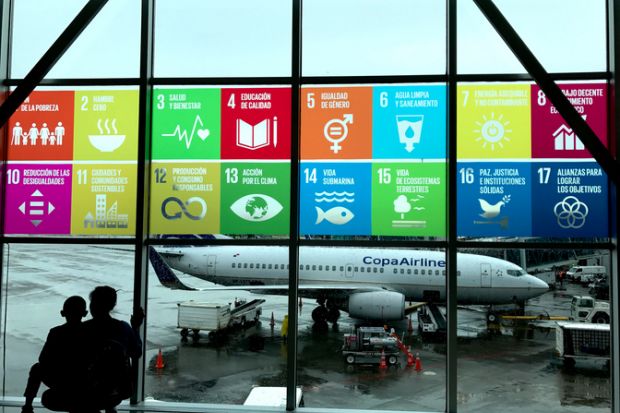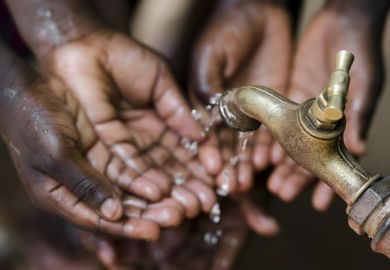At UCL’s recent Beyond Boundaries conference on the United Nations’ Sustainable Development Goals, listeners may have been surprised to hear panelists refer to this as a “1968 moment” for the SDGs. With Covid and widespread economic hardship on the front pages, are we really likely to see new enthusiasm for the 17 goals, which were universally adopted in 2015?
But perhaps we shouldn’t be surprised. The turbulence and civil unrest we associate with the 1960s, which led to radical innovation in legal norms, institutions and the ways we organise our societies, seem very familiar today.
Now, however, all our crucial challenges relate to sustainability and inequality. “Covid is an SDG crisis,” as Aromar Revi from the Indian Institute of Human Settlements put it at the conference. The pandemic is a health crisis (SDG 3), but it is intimately bound up with questions of environmental degradation (SDGs 6, 14 and 16), urbanisation and dense living (SDG 11). The economic fallout has also exposed and amplified issues of gender justice (SDG 5), decent work (SDG 8) and inequality (SDG 10).
Covid-19 is itself a consequence of environmental degradation: one recent study in Nature dubbed it “the disease of the anthropocene”. It comes at the same time as the climate emergency is accelerating. We desperately need long-term thinking and approaches that take whole systems into account, not only to make sense of this pandemic but to “build back better”, as many politicians have pledged to do.
Higher education must respond to the crisis by acknowledging the complex challenges we face and then leading global inquiry into the necessary solutions. We envisage three central roles for universities.
First, we have a key role as researchers and educators. We have a responsibility to direct research – into everything from vaccines to green finance – and teaching efforts towards the SDGs, making sure that our students engage with them critically. The concept of sustainable development also challenges us to interrogate the systems governing economic growth and what is valued in society – systems within which universities are deeply embedded.
Second, even in these days of remote learning, universities are often dominant players and major employers in their towns, cities and rural areas. Their campuses are mini-towns, with their own interlinked problems. They are thus ideal for “living lab” experiments, in which researchers can actively trial new solutions. By embracing experimentation in areas such as waste, emissions reduction and active travel, they can lead by example and move away from the “ivory tower” stereotype towards deeper engagement with local communities.
Finally, universities, particularly in Europe and North America, are well placed to engage in new and deeper partnerships with higher education institutions and governments in the areas that are experiencing the worst effects of the climate crisis and face the greatest difficulties in addressing the SDGs. We need to see genuine partnerships and research engagement between universities in the Global North and the Global South. Such partnerships could improve the relevance and impact of our research, while also beginning to address long-standing imbalances and inequities in research funding and knowledge production.
Universities have the opportunity to bring together these roles and get our hands dirty in tackling the SDGs at city, regional and national levels. One of the reasons we get up in the morning to work at the UCL Institute for Innovation and Public Purpose is just this model of academic engagement. Founded by Mariana Mazzucato in 2018, the institute aims to reimagine concepts of public value and the role of the public sector. The SDGs are at the heart of our everyday work. For example, we’re collaborating with the Biscay government in northern Spain to develop a regional tax that is SDG-oriented, and with Camden Council – UCL’s London borough – on sustainable post-Covid economic renewal.
As well as riots, 1968 also saw humans orbiting the moon for the first time. However, meeting the challenges set out in the SDGs will be even more complex. They are bound up with socioeconomic, judicial and political issues, and require portfolios of experiments right across the innovation “chain”. Yet if we harness universities’ combined powers of innovation, perhaps we will be able to look back and see this moment as a tipping point just as dramatic as 1968.
Martha McPherson is head of green economy and sustainable growth and Kate Roll is assistant professor in innovation, development and value at the UCL Institute for Innovation and Public Purpose.
Register to continue
Why register?
- Registration is free and only takes a moment
- Once registered, you can read 3 articles a month
- Sign up for our newsletter
Subscribe
Or subscribe for unlimited access to:
- Unlimited access to news, views, insights & reviews
- Digital editions
- Digital access to THE’s university and college rankings analysis
Already registered or a current subscriber?







